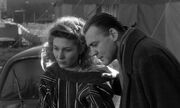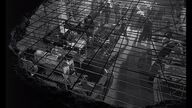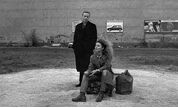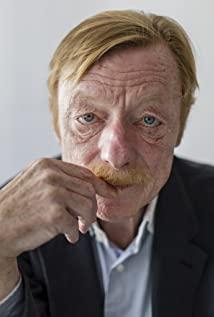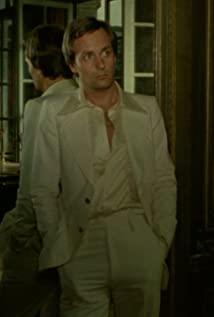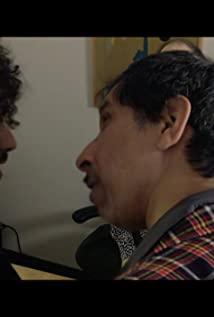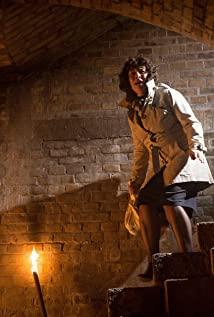Voice narration does not mean the possible effects of all the content in the voice - it does not mean that the actor's line performance has an influence on the narration and can be regarded as a voice narration, but the voice itself, its appearance, its existence itself.
The first is to explain the identity of the characters. The film does not tell the audience at the beginning that these two people are angels, and "angels" only appear in the lines in the second half of the film. Especially for people who are not familiar with religion and have not been immersed in religious traditions for a long time, the opening one or two shots with open wings are not enough to show that these two are angels, and even the two may not be able to recognize them. How did Wim Wenders do it? He made everyone speak with their mouths open, but worthy of their voices. At first, the audience may still think who this man is, why he smiles, why he is featured, and what function does he play in the narrative of the film... But gradually the audience feels it: Oh, it turns out that the two people appeared as soon as they appeared. There will be this voice, so it will be guessed whether these two people have unique identities and characteristics, especially when it comes to the passage in the library, readers can identify that these two people are angels, and many angels are gathered in the library, which is invisible to ordinary people. They, they can hear the hearts of beings.
For another example, after hearing the director's friendly confession, one of the two angels rushed over to shake hands while the other carefully observed. This little bit of a bridge immediately makes people understand the huge difference in personality.
A venue like the library, in addition to its spatial characteristics, can convey a small part of the content (later Nicolas Cage also played an angel in "City of Angels", and also used the library bridge, which is a tribute to the Berlin sky Well, but the two films are still very different), and more importantly, the library appeared to assist in explaining the identity of an angel. Because compared with public places such as airports and subways, people in libraries cannot speak freely. This seems to be a unique agreement. Also because of the quietness of the library, it helps the audience realize that the content of the voice-over at this time is not what people have spoken.
The second is to create the scene. In the picture on the plane, the voices of many people are mixed together, but they are all whispering, not noisy, very stable and rational. The whole film is actually based on this style. The emotions that follow can be handled very delicately when they need to be expressed: the unease of the female clown when performing at a high altitude, the sound of the audience has become quiet, aggravating the tense atmosphere. This kind of usage seems very simple, but in fact, unless a consistent style is maintained, the film cannot give people a detailed feeling. The processing of each part of the sound is actually related.
The third is to promote the development of the plot. This part naturally involves a little bit of content in the sound. More typical, for example, the different reactions of the angels after the director's confession just mentioned. In addition to clarifying the difference in personality, it also has another function, which is to help explain why the angel is willing to be a human-because this angel has a more enthusiastic and impulsive personality. Without this little snippet, the explanation would not be strong enough, or it would seem too whimsical. There is another little joke, which is very funny. It was the first time I saw a female clown who was practicing. After practice, she walked out with her wings on. Colleagues joked that she looked like an angel, saying, "Look at an angel walking by." As a result, the real angel next to him was startled. The small misunderstanding formed by this sound is actually very interesting, and it can make a stable film come alive. It is a paragraph based on the situation. The director and screenwriter's grasp of the situation is very clever.
There is such a thing, when angels and ordinary people appear in the scene at the same time, ordinary people really speak, but angels can't speak. This setting does not seem to be special in the process of watching the film, as if the angel is careful to avoid being discovered by others. Actually there is another purpose. Imagine if the angel and the human were talking and couldn't hear each other. The voices should not be heard, but they seem to be heard by the audience at the same time. Wouldn't it be too strange? Therefore, the control of sound is very important, and "Berlin Under the Sky" does exactly that.
Having said that, the voice narration is only a small part of the film, there are many other aspects to talk about, and the paragraphs of the voice narration are more than the ones I mentioned. In the process of watching the film, if we can pay more attention to some content, we will feel that the film is very rich and interesting. If you also find such a small paragraph, welcome to say it below.
View more about Wings of Desire reviews



